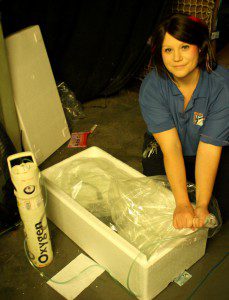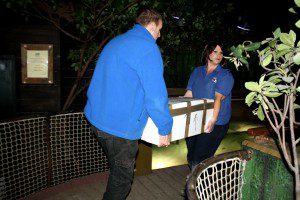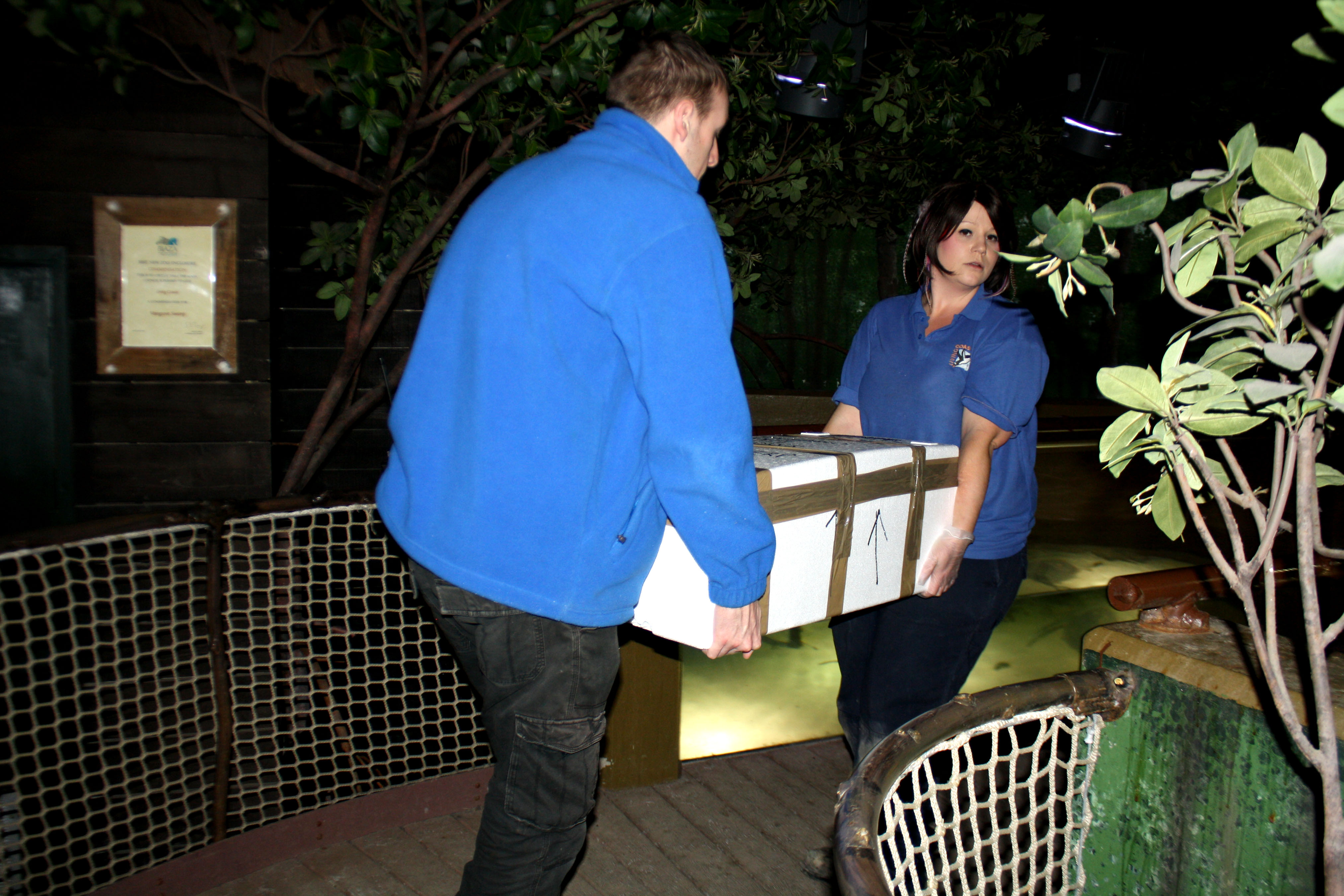How do you transport large, exotic and venomous fish from the English Riviera to zoos on the Continent? The answer is – with great care…
Staff at Living Coasts, Torquay’s coastal zoo, recently had the unenviable task of moving two stingrays to Antwerp Zoo and another to Pairi Daiza, a zoo and botanical garden in Brugelette, in south western Belgium.

The blue spotted ribbon tail ray, Taeniura lymma, is capable of injuring humans with its venomous tail spines, which is why keepers wear special venom defender gloves for the operation. Although in fact the biggest issue is keeping these tropical fish warm in transit. Living Coasts Operations Manager Clare Rugg:
“The fish were moved from an off-show holding tank into a tub so that they could be checked over by the vet – a special heater was placed in the tub to keep the water warm. After that they were put into new warm salt water inside a special fish transport bag and triple bagged for safety. Then it was into a polystyrene transport case with heat pads in the base. Oxygen was added to the bag to keep the fish going through the journey.”

The vehicle – belonging to specialist transport company JCS Transport – was also temperature controlled. Clare added: “The move went very smoothly and the fish arrived safely. Although they are an experienced live animal transport company, it was the first time that JCS had actually moved rays.”
Before the fish could go anywhere, Clare had to complete all the paperwork for the Centre for Environment, Fisheries & Aquaculture Science, which is part of DEFRA and which regulates the import and export of live fish.
The International Union for Conservation of Nature has listed this species as Near Threatened, as it faces widespread habitat degradation and intensive fishing pressure throughout its range. These individuals are all part of a European breeding program and were chosen to be genetically matched with different males in the other collections.
“We have a very successful breeding population at Living Coasts. More will be moving on soon. The day these rays left, two more were born!” For more information go to www.livingcoasts.org.uk or ring 0844 474 3366.




























